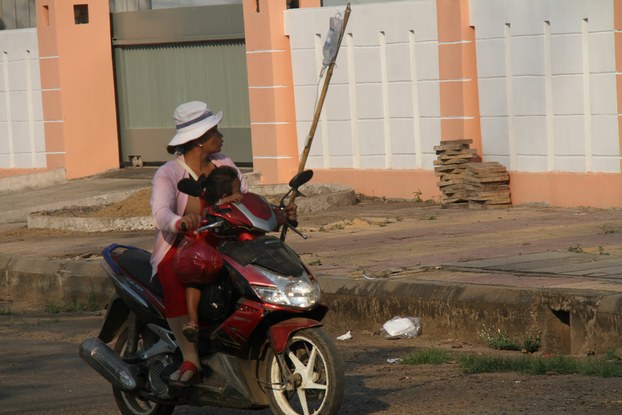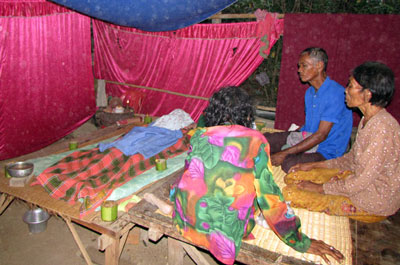




Villagers in a remote district of northeast Cambodia’s Kratie province say obtaining medical treatment has become extremely difficult since the government reinforced a ban on unlicensed health workers and clinics earlier this month in the wake of a mass HIV infection last year.
The Ministry of Health on March 9 urged local authorities to implement the ban in response to the crisis in Roka commune, in Battambang province’s Sangke district, where nearly 270 villagers have tested positive for HIV/AIDS since November 2014.
Authorities have since charged Yem Chhrem, the unauthorized medical practitioner who worked in an unlicensed village clinic in Roka, with murder and other crimes related to the mass infection after he admitted to reusing needles to treat patients.
Prak Sengly, a resident of Sre Cha commune in Kratie’s Sambo district, told RFA’s Khmer Service Tuesday that, ever since the ministry directive on unlicensed health care, villagers have been required to travel around 20 kilometers (12 miles) to the nearest licensed clinic for treatment.
“I don’t think state-licensed doctors are much better than doctors at private clinics,” Prak Sengly said.
“The private doctors were helping us,” he said, adding that receiving medical treatment in remote areas of the province had been much more convenient before the ban was reinforced.
Prak Sengly said that while Sre Cha commune has a licensed health referral center, the facility only has six beds and the doctors and nurses who are normally stationed there had left, along with the center’s medical equipment.
Sre Cha commune chief Tuy Yuk told RFA earlier this month that provincial officials and local authorities had forced unlicensed area health care providers to suspend their businesses and attend classes.
He acknowledged that since the directive from the Ministry of Health, his villagers had found it very difficult to seek medical attention, and said if they had a health emergency in the middle of the night, it was nearly impossible to find treatment.
“In remote areas, villagers were relying on [unlicensed] private doctors, but now they have shut down their businesses,” he said.
Private health care
Ministry of Health spokesman Ly Sovann said his agency is working with the Ministry of Interior and local authorities to improve private health care providers.
“We had this measure in place long ago, but there was little implementation, so we must reinforce the private health sector to be effective,” he said.
Ly Sovann urged villagers to report to the ministry if they encountered any state-licensed health care centers with no doctors or nurses present.
According to the Ministry of Health, 5,757 private clinics became licensed in Cambodia between 2009 and 2014, and the ministry is working to approve additional facilities.
Cambodia’s dearth of licensed medical practitioners stems from the bloody 1975-79 era of the Khmer Rouge regime, when physicians, lawyers, teachers, engineers, scientists and professional people in any field were murdered, together with their extended families.
According to the World Bank, in 2012 Cambodia had a mere 0.2 physicians for every 1,000 people, or nearly 3,000 in a nation with a population of just under 15 million at the time.
Fear of vaccines
